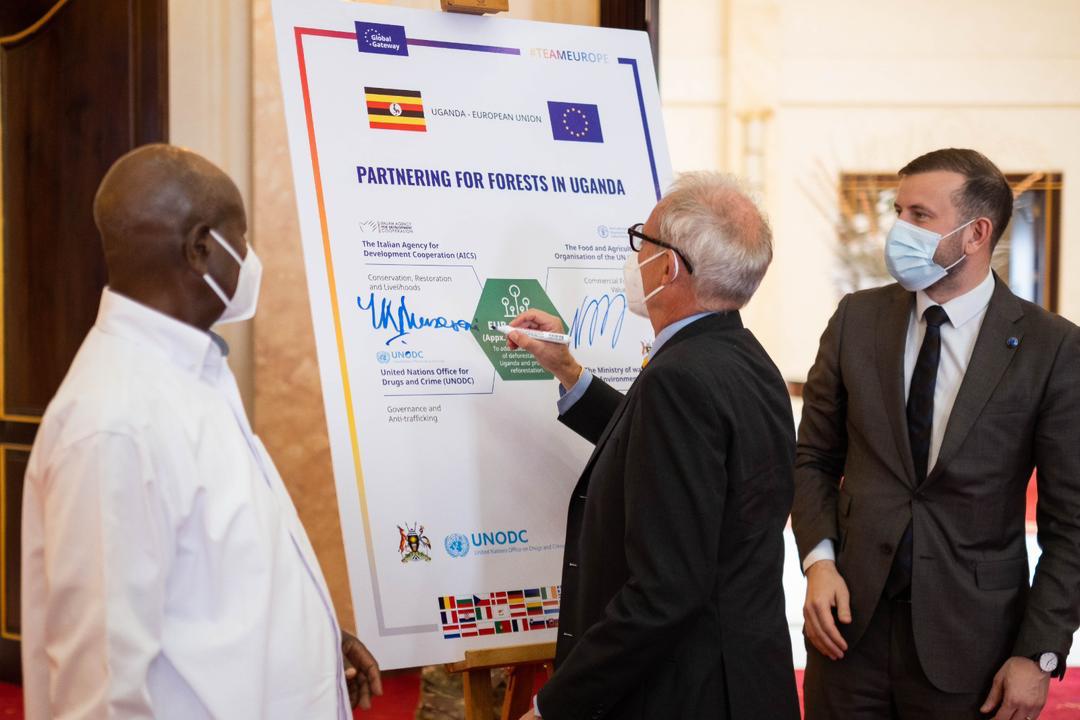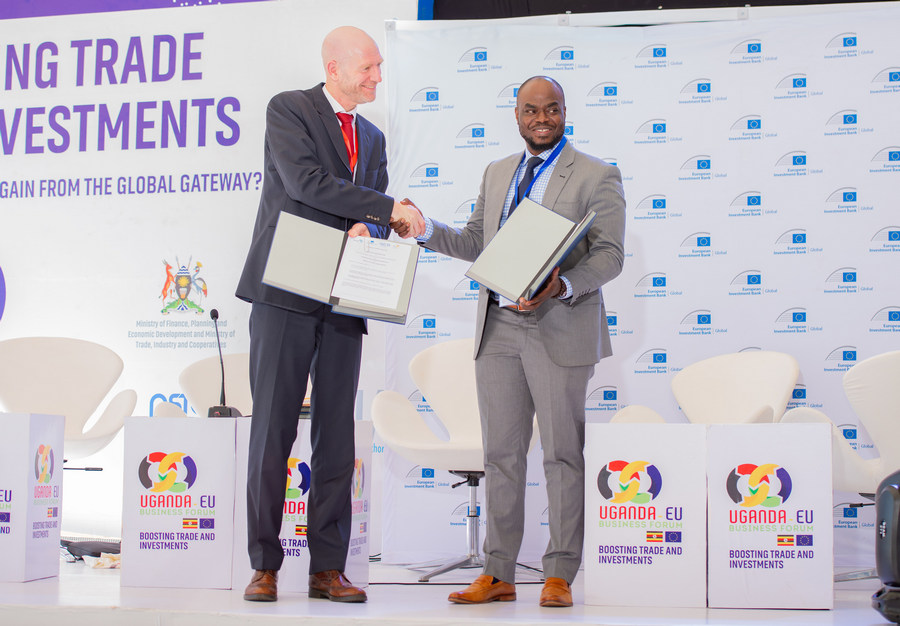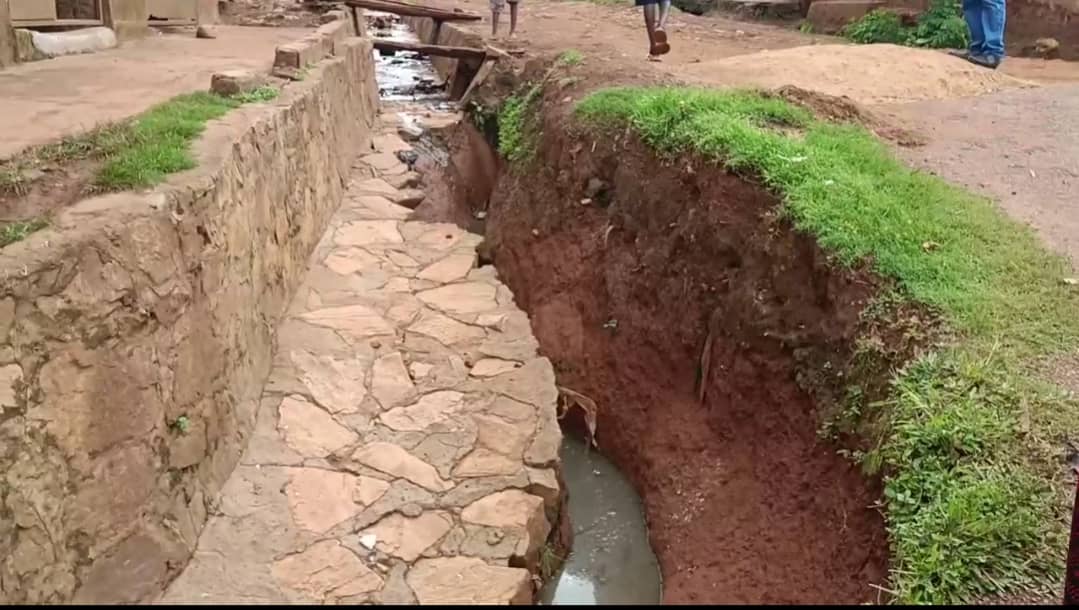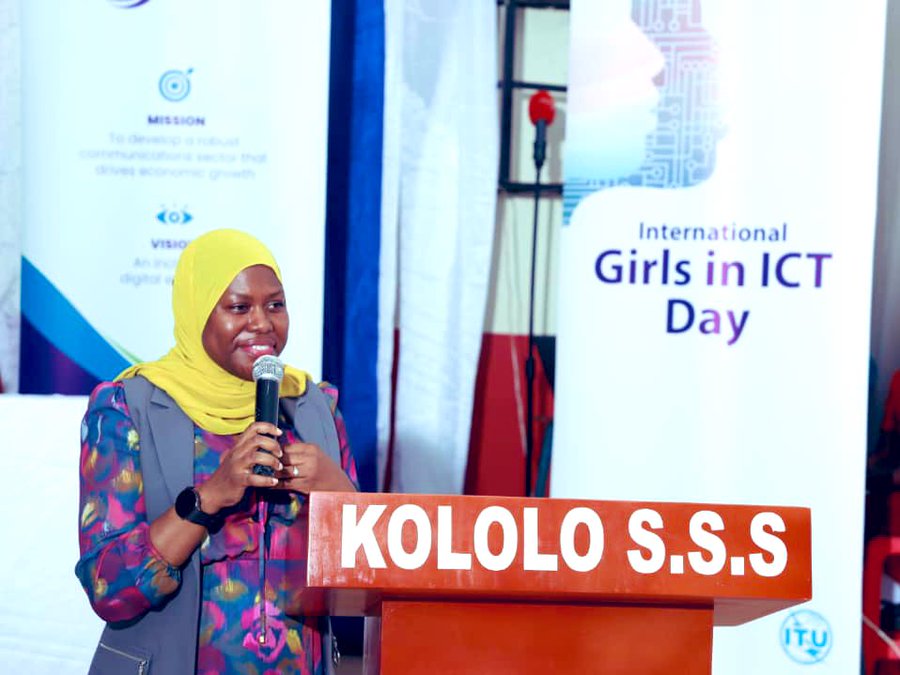Tayebwa asks EU to stop exporting Cancer causing products to Africa
The Deputy Speaker of Parliament Thomas Tayebwa, has condemned the practice by some European Union member states of exporting banned pesticides and products to developing countries.
The Deputy Speaker asked member states to strongly speak as a team against this double-standard arrangement citing the “vulnerability we all have”.
Keep Reading
- > Review courses before licencing universities, Tayebwa asks gov't
- > International Trade Centre, EU launch second edition of business acceleration project for Uganda’s film industry
- > EU gives Uganda shs167bn to tackle deforestation
- > Innovate or you perish- Deputy speaker Tayebwa tells insurance companies
He made the remarks while speaking at the Organisation of African, Caribbean, and Pacific (ACP) parliamentary conference happening in the Belgian capital, Brussels. It is the headquarters of the European Union and NATO.
Tayebwa said that developing countries don’t have the capacity to take on the EU independently, noting that “speaking against this with one voice gives us an advantage”.
He rallied developing countries to jointly reject what he described as unfair trade and deceitful practices orchestrated by the European Union against others countries.
“We are telling the EU to be transparent, we are all human beings. We all have red blood. You don’t have blue blood and for us, we have red blood. The milk that kills a European, can kill an African. The pesticides that can cause cancer to a European, can cause cancer to a Caribbean. Why are you allowing dangerous products to be manufactured in your union and be exported to other countries? Stop it,” Tayebwa charged.
He said some of these poisonous products such as milk are sent by the European Union to poor countries in form of donations to poor children and refugees.
“If you send them to a refugee, someone who has nothing to eat or drink, how will you tell them about sovereignty?” the Ugandan deputy speaker said, noting that some of these products come through the UN system and that they are cleared directly to beneficiaries.
Tayebwa said most countries where EU-made poisonous products and exported have no safety bodies to carry out their own tests.
“Pesticides and products that are no longer allowed for use in countries where they are manufactured in the European Union due to their potentially harmful human health and environmental impacts are being pushed to our countries,” Tayebwa said.
He further stated that it is unfair for anyone to allow a cancer-causing product to be manufactured as long as it’s for export to other countries.
The practice by manufacturers of continuing to export chemicals from the EU after they have been banned domestically is not new, but the key players have always been obscured by a veil of commercial confidentiality.
One of the few restrictions placed on these exporters is the Rotterdam Convention on international trade in hazardous pesticides and chemicals.
This UN convention requires countries to share information about the dangers of their banned chemical exports with the importing countries.
The idea is to give poor countries that do not have the resources to do their own research the opportunity to make an informed decision on whether to accept the exports.
Under EU rules, any company that wants to export banned chemicals needs to produce an “export notification” detailing the reasons the product is banned, its intended uses, and the amount the company intends to ship.
National and EU regulators check these documents and issue them to authorities in the destination countries.



















